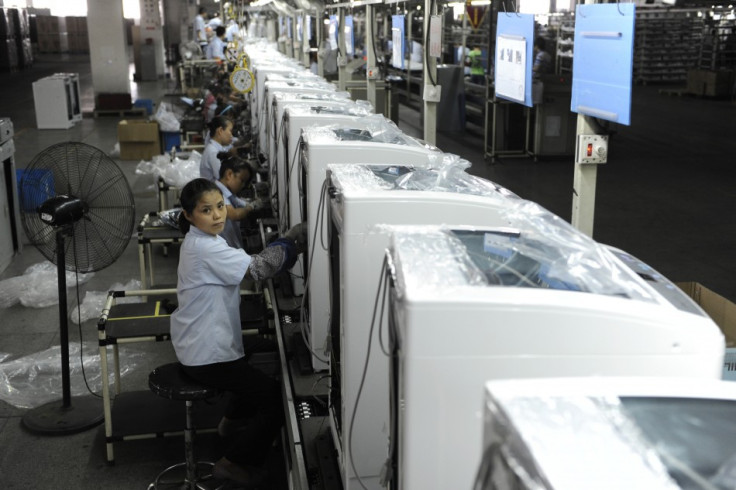China Manufacturing Rebounds Strongly on Fine-Tuning Measures

China's manufacturing sector experienced a strong recovery in August with improved output and new orders, a positive sign that the world's second-largest economy is gathering pace after two quarters of slow-down.
The HSBC flash China manufacturing purchasing managers' index (PMI) rose to a four-month high at 50.1 in August, from 47.7 in July. That was well ahead of economists' estimated reading of 48.3.
A reading above 50 in the index, the earliest available indicator of manufacturing sector operating conditions in China, shows an expansion in manufacturing activity. The flash index is based on data collected between 12-20 August from about 85%-90% of total PMI survey responses.
"China's manufacturing growth has started to stabilise on the back of modest improvements of new business and output. This is mainly driven by the initial filtering through of recent fine-tuning measures and companies' restocking activities, despite the continuous external weakness," HSBC's China economist Hongbin Qu said in a statement.
"We expect further filtering-through, which is likely to deliver some upside surprises to China's growth in the coming months."
A sub-index measuring output rose to a three-month high at 50.6 in August from 48.0 in July. While new orders expanded on improved domestic demand, new export orders declined at a faster rate, indicating continued sluggish demand from key export markets such as the US and Europe.
Economic Recovery
China's economic growth rate has slowed down in the second quarter to 7.5% from 7.7% in the previous three months, partly due to lower export demand.
Amid fears of further decline in growth rate, China has been trying to boost domestic consumption to offset the slowdown in external demand and sustain its high growth.
It took a set of measures including the suspension of value-added tax and turnover tax for small businesses with monthly sales of less than 20,000 yuan ($3,257; £2,125; €2,421).
The move was expected to benefit more than six million small companies and improve the labour market, as well as provide income for millions of people.
China's government was also planning to simplify customs clearance procedures, cut operational fees and facilitate the exports of small and medium-sized private enterprises.
The government has set a target of 7.5% growth for fiscal year 2013, the lowest rate of expansion in more than two decades. However, the country noted that it is ready to accept an even lower rate of growth for the sake of a more sustainable growth model for the future.
The People's Bank of China (PBoC) Governor Zhou Xiaochuan said earlier that the country is not aiming to make big changes to its current economic policy in the second half of 2013, but will "fine-tune" it as needed.
© Copyright IBTimes 2024. All rights reserved.






